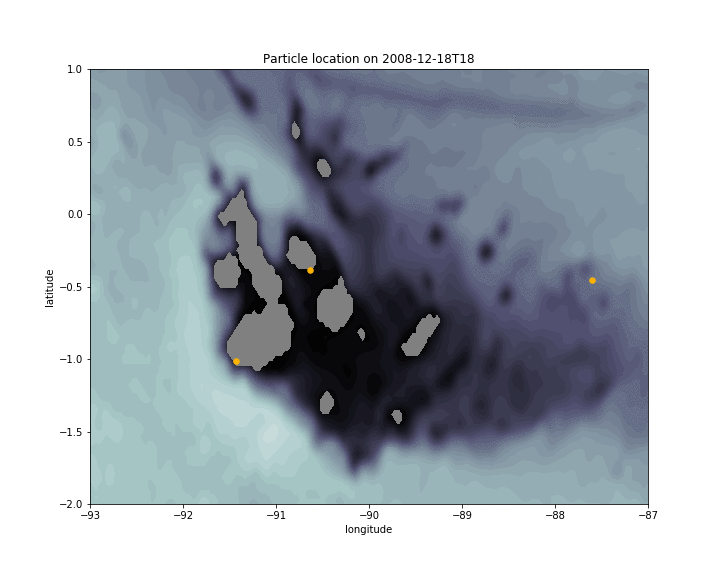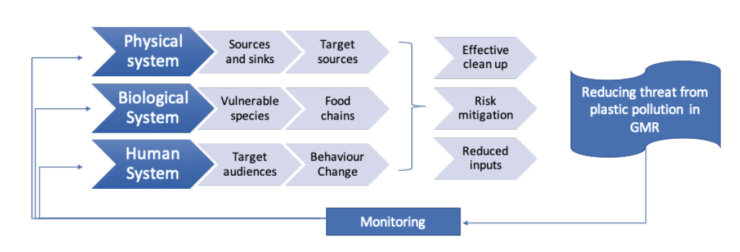Project description
For this project we will develop a predictive clean-up tool to allow efficient removal of plastics from beaches on the Galapagos Islands. We use a particle tracking software that is able to combine ocean current data with wind, tides and wave models to accurately track the movement of particles that resemble plastics through the oceans:

First results indicate that non-local sources of plastics on the Galapagos Islands are likely to originate from specific areas along the mainland of South America and from international fishing operations outside the Ecuadorian border of the Galapagos Marine Reserve.
A next step is to increase the model resolution so we can investigate the movement of plastics between the islands in more detail. Combining these results with forecasts models, we will be able to predict where and when plastics is going to arrive on the islands.
Furthermore, we will set out special drifters to better map the ocean currents near the Galapagos and to validate the results of the model study. Up until now, most drifters that have traveled near the Galapagos Islands float at a depth of around 15 meters. These are ideal floats to e.g. map the temperature and nutrient distribution in the ocean. However, most plastics float at the ocean surface and are subject to waves and wind. Therefore, a new type of drifter is being developed that we will deploy at specific locations around the Galapagos to better understand the movement of plastics in the area.
News and progress on the project will be regularly shared on our blog.
Plastic Pollution Free Galapagos
This project is part of the Plastic Pollution Free Galapagos, which is an international alliance of experts working to combat the threat plastic pollution poses to the unique biodiversity of Galapagos, Ecuador. Oceanographers, marine biologists, ecotoxicologists, environmental psychologists, policy makers and even archaeologists are working together to identify major sources of pollution, to understand and address the risks to wildlife and to test solutions to decrease the impacts of plastic waste in the region. Results underpin coordinated education, outreach and advocacy efforts aiming to make the Galapagos Marine Reserve the first marine protected area to be free from the threat of plastic pollution. Technologies, processes and approaches developed within the programme will be made available to support the efforts of island nations and archipelagos worldwide to tackle this global challenge.
Read more here.

© GCT

